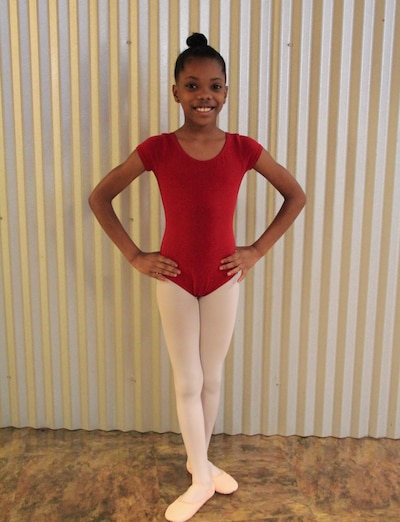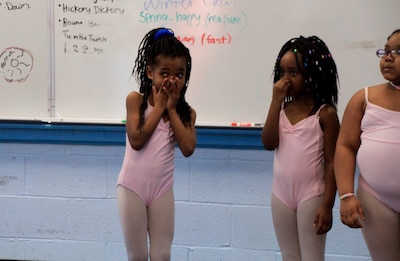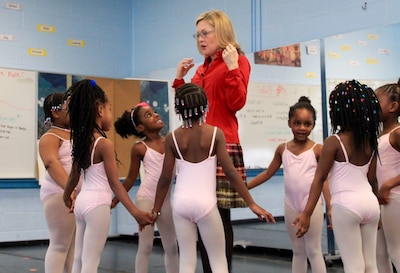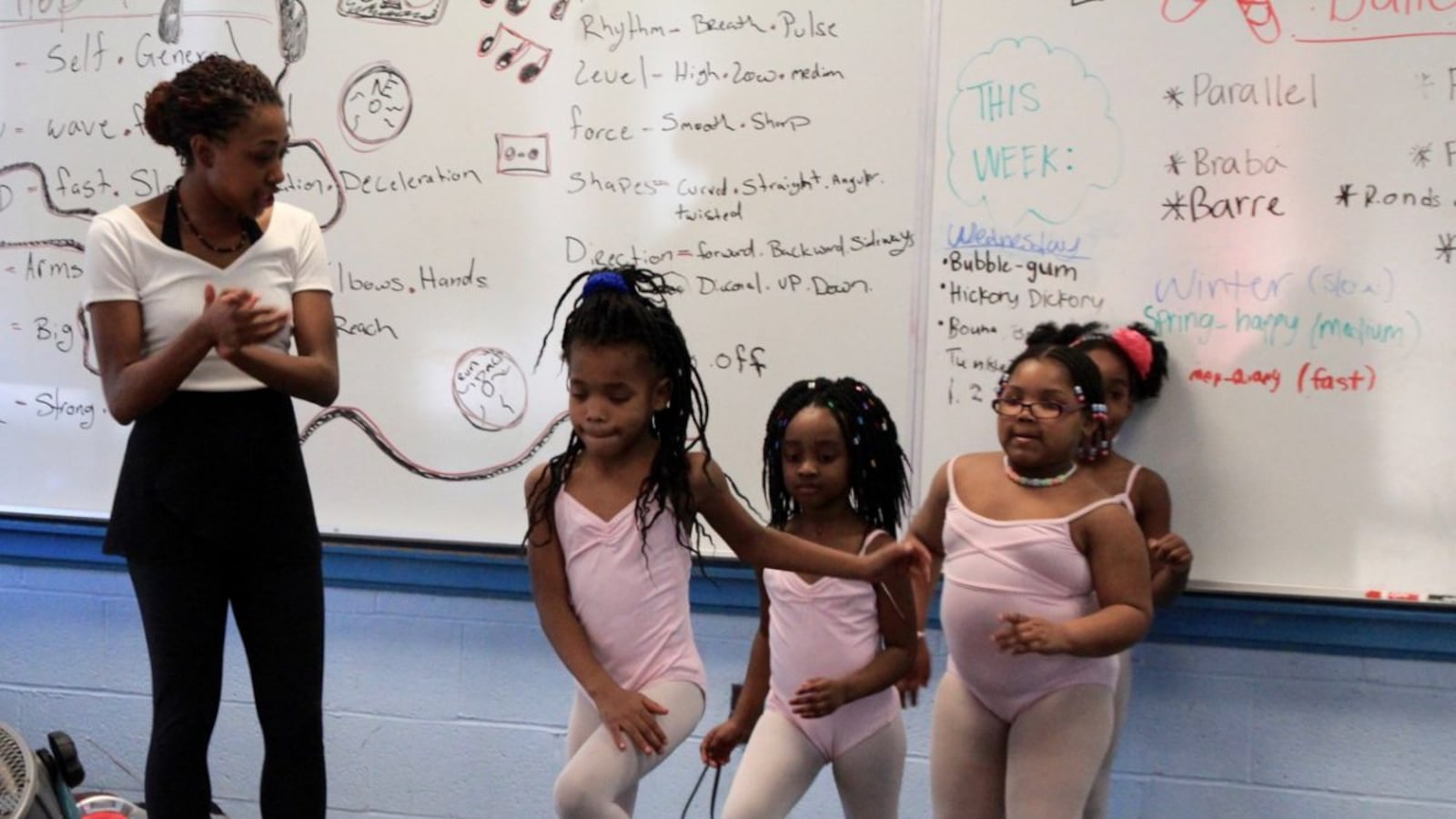Instructor Briana Brown counts aloud as first-graders in pink leotards skip across a classroom floor to practice their leaps and twirls — a weekly highlight for students at Dunbar Elementary School.
In the South Memphis neighborhood, ballet lessons offered through the nonprofit New Ballet Ensemble introduce students to the art of dance at a school with few resources for extracurricular activities.

Ten-year-old Briana Davis is among the beneficiaries.
Before joining New Ballet’s class, she danced throughout her mom’s house, just a short walk from Dunbar in the city’s historic African-American community of Orange Mound. Now, Briana is among about 40 Dunbar students who jeté and pirouette in a makeshift classroom studio at Dunbar, or after school in a studio at the group’s headquarters in midtown Memphis.
“I want to keep dancing and to be a dance teacher when I grow up,” Briana said. “I think this is really special. If I hadn’t done ballet at school, I don’t know if I ever would have danced for real and not just at home.”
For eight years, New Ballet Ensemble has been teaching classes at Dunbar and offering scholarships to a talented few to continue their dance education outside of school time. Here under the tutelage of teaching artists who are fluent in classical ballet and other styles of dance, they learn to follow instructions, practice new positions, strengthen young muscles and develop discipline, all while expressing themselves creatively and learning about a world beyond Orange Mound.
But the Memphis dance company’s work has gone far beyond teaching students how to plié and fondu. Thanks to grants that New Ballet helped secure, Dunbar now has a community garden and parent resource center.
And when Dunbar was on the chopping block to be closed this year by Shelby County Schools, New Ballet dancers, instructors and supporters showed up en force at school board meetings. The district later reversed its decision and opted to keep Dunbar open. Superintendent Dorsey Hopson cited community support as a reason for his change of heart.
Katie Smythe founded New Ballet Ensemble in 2001 to teach dance, but quickly discovered how her organization’s work was being limited by a dearth of community resources available to public schools in Memphis.
“We came here to find talented kids for dance, but we found that our access to community partnerships and the school board to be the real opportunity point for us,” said Smythe, who also serves as the group’s artistic director. “The school board and administration learned while trying to close this school how valuable community partnerships can be, I think.”
New Ballet became one of the first outside-of-school organizations to have a stake in the Dunbar school community, said Principal Anniece Gentry.

“When students see community partners are invested in their school, they want to achieve more,” Gentry said. “Our relationship with New Ballet is one I will always treasure. They work to do more than anyone else I’ve seen.”
The parent resource center is one of the most valuable additions. Stocked with computers, coffee and books, the room was created for parents with help from a $25,000 grant from ArtsMemphis, a local advocacy and funding group.
“There are computers for parents to use if they don’t have internet at home,” Smythe said. “I’ve seen parents drop their children off, walk to the room and apply for jobs while grabbing a cup of coffee. (For some parents), there was no positive reason for parents to come to school before this, only if their students were sick or in trouble.”
Building parent relationships have become key to New Ballet’s mission at Dunbar, and Smythe wants to take the group’s learnings to other Memphis schools. It’s already helping with arts education in classrooms at Bartlett and Sherwood elementary schools, and Smythe wants to bring Dunbar-style ballet programs to secondary schools that now teach former Dunbar students at Treadwell and Sherwood middle and Melrose and Douglass high.
But that takes money.
New Ballet is dependent on the National Endowment for the Arts, a federal agency that could experience huge cuts under President Donald Trump’s administration. In addition to $15,000 in NEA funding, the group gets money for its school programs through the Tennessee Arts Commission, which also comes from NEA.

To remind those who hold the pursestrings about educational ballet programs like Dunbar’s, Smythe recently joined other arts advocates to speak with lawmakers in Washington, D.C. Their message: The arts are more than just concert halls, expensive tickets and paintings that people don’t understand. It’s also about helping students to grow mentally, physically and academically.
For students like Briana, support for New Ballet would mean another year of free ballet lessons and after-school programming.
“I really look forward to performing,” Briana said. “Learning to dance is really fun. But being able to show off how much I’ve learned to my mom? That’s the best.”

